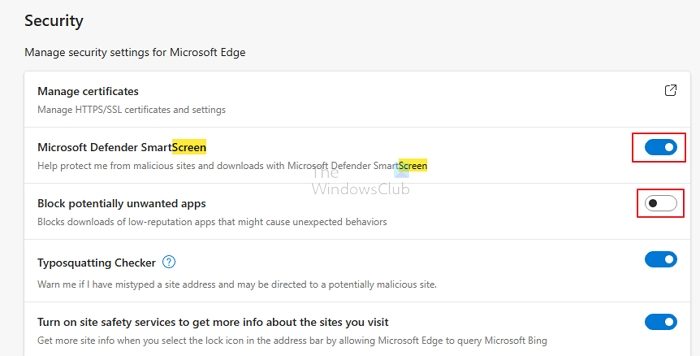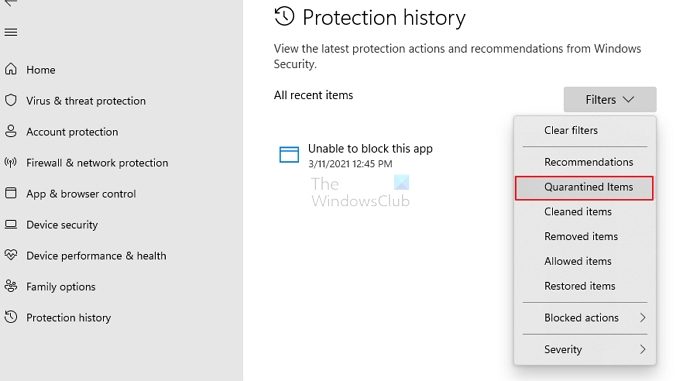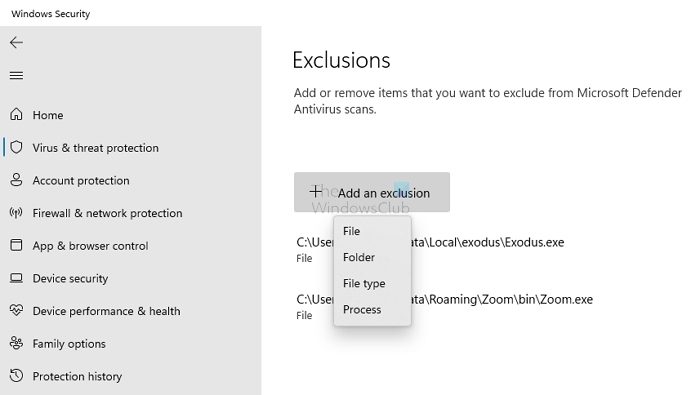It is common when you download an EXE or installer; it gets instantly removed from the location. At times, users have also reported a running program missing. Unless the program or file contains a virus, any administrator user can resolve this by making a few changes. This post will guide you on how you can resolve when exe files keep getting deleted randomly in Windows.
Why does Windows delete EXE Files?
Most viruses or malware are delivered through executable files. If the Antivirus on your computer suspects an EXE you downloaded or a Program, it blocks it. That way, if there is a program trying to harm the computer, it will be quarantined.
Exe files getting deleted randomly in Windows 11/10
Follow these solutions to resolve the problem. Make sure to use an admin account.
- Check Browser Settings
- Check Quarantine Section
- Antivirus Configuration
- Exclude Files/Program from AntiVirus
Ensure to check if the status gets fixed after every step.
1] Check Browser Settings

Most browsers come with a safeguard that blocks an EXE file or installer if it’s new or reported by others. It will also block files that are not commonly downloaded.
The good thing is, the browser allows you to download it with consent. Check with the download menu on the browser, and you should have the option to unblock it.
So if you were wondering what happened to the EXE file you were trying to download, this is the solution. If you want to disable this, look for two options in your browser settings:
- Screening or Scanning feature
- Block Potentially Unwanted apps
If you are super confident about what you download, turning these off will ensure the browser doesn’t block any files.
2] Check Quarantine Section

If you are sure that the program you downloaded or the one that was already running is safe, you can check the Quarantine section. All Antivirus products have this safe place to move the file and block it. This measure ensures a rouge program never harms the files on the computer.
The security software on your PC will allow you to move the program from quarantine to the exact location from where it was picked up. So it will automatically start running or will be available for you to install further.
3] Antivirus Configuration
Suppose you run experimental software to test, and they have not been certified or included in the safe list of the Antivirus. In that case, you can lower the security level to allow such programs. When someone creates software, they can get it checked with the security software and included in an exception list. If that is not the case with your software, it’s best to lower the security level.
4] Exclude Files/Program from AntiVirus

Another way to resolve this is by adding the program to an exception list. You should do it only if you are sure that it will be safe. Once added to the exclude list, the security software will run without any restrictions.
Related: Files and folders suddenly disappeared.
Can deleting EXE file break Windows?
Usually no. If you try deleting a program that is part of the OS, it usually will not allow you to delete it. If you are deleting an exe of a program, then it will stop working.
That’s all! Hope this helps.